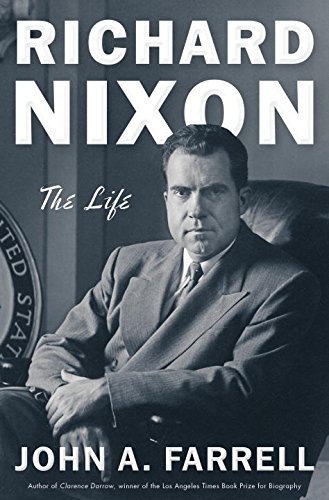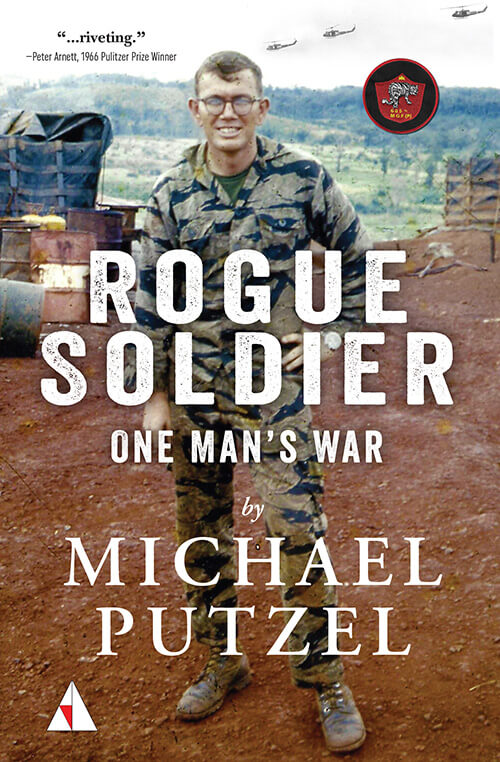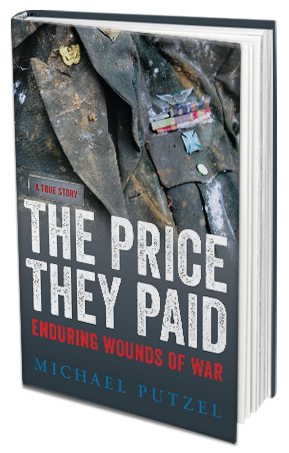Blog
How many died after Nixon “monkey-wrenched” peace talks?
Posted by • January 04, 2017
In the fall of 1968, as Americans turned against the far-away war in Vietnam, President Lyndon B. Johnson desperately sought a peace agreement to stop the fighting before his war-scarred presidency was to end on January 20, 1969. Johnson already had reluctantly taken himself out of the race, and Richard Nixon, the Republican, was running against Johnson’s favored successor, Vice President Hubert H. Humphrey.
 There has long been speculation, fueled by growing bits of inconclusive evidence, that Nixon deliberately tried to sabotage the peace talks to prevent the Democrats from winning political points on the eve of the increasingly close November election. Nixon always denied he would do anything so dastardly.
There has long been speculation, fueled by growing bits of inconclusive evidence, that Nixon deliberately tried to sabotage the peace talks to prevent the Democrats from winning political points on the eve of the increasingly close November election. Nixon always denied he would do anything so dastardly.
Nearly a half century later comes John A. Farrell, a distinguished investigative reporter and prize-winning biographer, with documentary evidence practically from the candidate’s mouth, confirming that the campaign not only interfered to stall the peace talks but did so on orders from Nixon himself.
“Now we know Nixon lied,” Farrell wrote in The New York Times on Sunday. “A newfound cache of notes left by H. R. Haldeman, [Nixon’s] closest aide, shows that Nixon directed his campaign’s efforts to scuttle the peace talks.” Farrell, whose biography of Nixon will be published in March, found Haldeman’s hand-written notes of a phone call with Nixon on the night of October 22, just two weeks before the election. Unearthed in a trove of documents added to the Nixon presidential library’s collection only seven years ago, Haldeman’s notes show Nixon ordered his staff to “! Keep Anna Chennault working on SVN [South Vietnam].” Anna Chennault was the activist widow of a famed American Air Force general and an outspoken member of the “China lobby,” an informal group of influential anticommunists dedicated to containing Communist China. Mrs. Chennault was the Nixon campaign’s undercover liaison to South Vietnam’s President Nguyen Van Thieu, a proud and cautious military man who didn’t trust the Americans to stay and win the war.
Mrs. Chennault sent word to Thieu that the South Vietnamese would get a better deal if Nixon were elected than if Humphrey succeeded Johnson. “Hold on,” she urged. Thieu dragged his feet, stalling the start of peace talks in Paris. That wasn’t all Nixon did. He also told Haldeman, later his chief of staff who was sent to prison for the Watergate coverup, to get Republican congressional leaders to blast Johnson for proposing a pause in the bombing of North Vietnam to encourage Hanoi to meet his conditions for peace talks.
Haldeman’s notes show Nixon was searching for “any other way to monkey-wrench” the peace initiative and asked if there was anything more Nixon could do personally.
When President Johnson learned of the Nixon campaign’s covert interference from the FBI, which was monitoring Mrs. Chennault’s activities, he called Nixon, who steadfastly denied he had anything to do with stalling the talks. Johnson chose not to go public with his belief but told aides he considered the former vice president’s meddling “treason.”
Eventually, after Nixon’s election, the talks got started in Paris but produced little for five years until Nixon’s national security chief, Henry Kissinger, secretly negotiated a cease-fire with North Vietnam that brought the release of American prisoners of war and the withdrawal of remaining U.S. forces. An uneasy peace lasted two more years until the North Vietnamese invaded and conquered the South in a dramatic offensive, ending with the collapse of the Saigon regime on April 30, 1975.
President Johnson’s huge buildup of American forces in Vietnam had already cost 36,000 American lives when Nixon beat Humphrey and assumed the presidency promising to end the war. In anger and frustration at their determined enemy’s intransigence, Nixon and Kissinger piled on, increasing the bombing while unilaterally withdrawing American troops to reduce their own casualties. The cost, nonetheless, was more than 21,000 more U.S. dead and hundreds of thousands of Vietnamese killed before war’s end.
Had Johnson succeeded in bringing the North Vietnamese to the table and had Humphrey won as a result, one can only imagine the war would have ended sooner with fewer lives lost. Nixon’s perfidy cost us that chance.
One thought on “How many died after Nixon “monkey-wrenched” peace talks?”
Comments are closed.







“Had Johnson succeeded in bringing the North Vietnamese to the table and had Humphrey won as a result, one can only imagine the war would have ended sooner with fewer lives lost. Nixon’s perfidy cost us that chance.”
This betrays a very American-centric view of the Vietnam War. It assumes that the North Vietnamese were negotiating in good faith, which pretty much every piece of documentary evidence coming out of books related to the subject-such as that of Asselin or Nguyen-shows not to be the case At no point until late 1972 did Le Duan see truly negotiating as desirable or necessary. There’s also Thieu, who for a whole nexus of reasons, apart from not being such a moron to need Chennault’s help to figure out who to support in the election, probably couldn’t have attended the talks even if he wanted to in the context of South Vietnamese politics in late 1968, with Ky talking to the Koreans and the general post Tet environment. Our intelligence services in Saigon pointed this out repeatedly to the Johnson White House, long before Chennault landed in Saigon, but this was not what Clifford and Company wanted to hear.
I agree that what Nixon did was inexcusable and probably illegal, and there’s a lot of Monday Morning Quaterbacking insofar as saying that this did not effect the *election*. But even before we get to the lack of domestic constituency that any US politician would have had for immediate withdrawal in 1969, the documentary evidence pertaining to the Vietnamese couldn’t be more explicit: neither side took the talks seriously in the slightest in late 1968. It’s leaving out a very important part of the story to not bring any of this up.